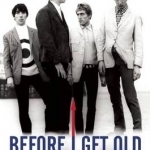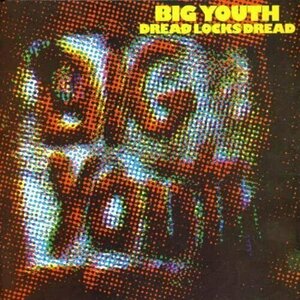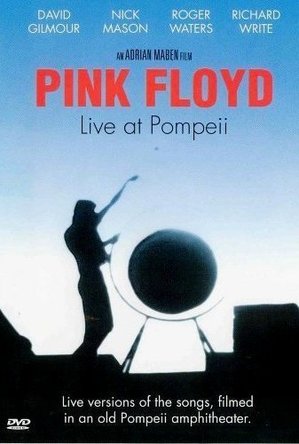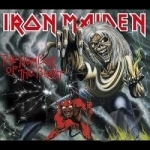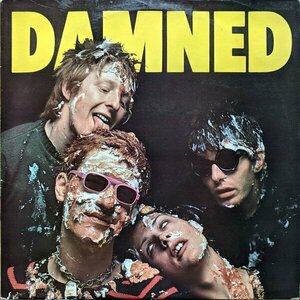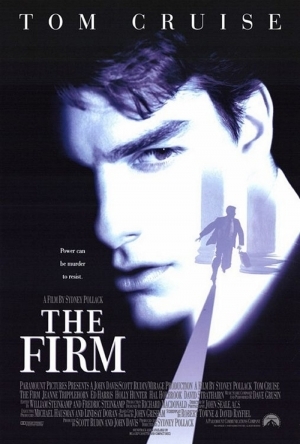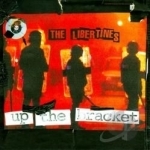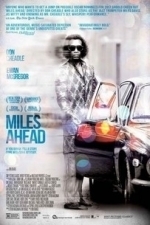Search
Search results
Cary Elwes recommended Before I Get Old: The Story of the Who in Books (curated)
Andy Gill recommended Dread Locks Dread by Big Youth in Music (curated)
Wayne Coyne recommended Pink Floyd: Live at Pompeii (1972) in Movies (curated)
Jerry Cantrell recommended Number of the Beast by Iron Maiden in Music (curated)
Duff McKagan recommended Damned Damned Damned by The Damned in Music (curated)
Tobin Bell recommended The Firm (1993) in Movies (curated)
Adam Green recommended Up the Bracket by The Libertines in Music (curated)
Gareth von Kallenbach (980 KP) rated Miles Ahead (2016) in Movies
Aug 6, 2019
If you’ve ever found yourself in a coffee shop, bookstore, or perhaps even a jazz club in the 21st century you can’t NOT have heard either the name ‘Miles Davis’, his music, or perhaps both. If you’ve been living under a rock your whole life and by some miracle you have a smartphone, computer, or a radio find a jazz station and it’s almost a sure thing you’ll here his music within minutes. The man is no myth although the man and his music are so legendary there is almost a mythical presence to him. He is one of the greats. No question. No argument.
‘Miles Ahead’ is a biopic about the legendary jazz musician directed by and staring Don Cheadle who also co-wrote the film with Steven Baigelman, Christopher Wilkinson, and Steven J. Rivele.
Emayatzy Corinealdi, Ewan McGregor, Michael Stuhlbarg, and Keith Stanfield. Rather than focus on the entire life of the great jazz musician which could encompass several films and take up an entire archive, the film focuses mainly on a period in Davis’s life where he is living in relative seclusion in his home in New York City after having retreated from the public spotlight five years previously. Miles endeavors to begin recording and playing music once again after combating addictions to alcohol and cocaine which he indulged in to deal with his wife leaving him and the heavy stress brought upon him by a loss of inspiration to compose music. At about this same time ‘Rolling Stone’ reporter Dave Braden (McGregor), a borderline paparazzi of the time but not quite, calls upon Davis begging him to let him write about Davis’s great comeback. After several futile attempts on the part of Braden, Davis reluctantly agrees after Braden introduces him to a new dealer willing to supply him with high-grade cocaine. What follows is something thats almost out of a Hunter S. Thompson book as the two attempt to recover a demo tape of Davis’s most recent recordings from a low level gangster/manager/agent who stole the from Davis’s home. Amongst the drugs and the booze and the gun fights and car chases there are brief flashbacks into Miles’s past where he relives times good and bad with his wife Frances (Corinealdi). How they met, how they lived, and how she inspired some of his greatest works through her graceful dancing and their mutual love for classical music like Eric Satie, Chopin, and Stravinsky and how he eventually lost her due to his addictions and indulgences.
For such a brief glimpse into the life of one of music’s greatest, the movie was quite well done. It was clearly a labor of love for Mr. Cheadle who had his hands in nearly every aspect of the movie and went so far as to learn to play the trumpet so he could actually play the music himself in the movie. The actor, who is amongst the best and most underrated of our time, reportedly spent six years making this film. The background music is mostly comprised of tracks from arguably one of Davis’s best albums ‘Sketches Of Spain’ and selections of his work is played by Cheadle himself. It’s sometimes difficult to tell whether the movie is more about the music or the man himself. Does it honestly matter though? In many ways, they’re one in the same are they not? The movie is rated R for scenes with violence, adult language, and intimate scenes. I’d give it 4 out of 5 stars. The only negative thing I have to say about is that I wish there had been more about the life of the man. His beginnings. Like when he was accepted into the Juilliard School of Music in New York only to drop out. His days spent jamming with Charlie Parker. Again, that would encompass far more time than one would consider ‘feasible’ for a movie.
‘Miles Ahead’ is a biopic about the legendary jazz musician directed by and staring Don Cheadle who also co-wrote the film with Steven Baigelman, Christopher Wilkinson, and Steven J. Rivele.
Emayatzy Corinealdi, Ewan McGregor, Michael Stuhlbarg, and Keith Stanfield. Rather than focus on the entire life of the great jazz musician which could encompass several films and take up an entire archive, the film focuses mainly on a period in Davis’s life where he is living in relative seclusion in his home in New York City after having retreated from the public spotlight five years previously. Miles endeavors to begin recording and playing music once again after combating addictions to alcohol and cocaine which he indulged in to deal with his wife leaving him and the heavy stress brought upon him by a loss of inspiration to compose music. At about this same time ‘Rolling Stone’ reporter Dave Braden (McGregor), a borderline paparazzi of the time but not quite, calls upon Davis begging him to let him write about Davis’s great comeback. After several futile attempts on the part of Braden, Davis reluctantly agrees after Braden introduces him to a new dealer willing to supply him with high-grade cocaine. What follows is something thats almost out of a Hunter S. Thompson book as the two attempt to recover a demo tape of Davis’s most recent recordings from a low level gangster/manager/agent who stole the from Davis’s home. Amongst the drugs and the booze and the gun fights and car chases there are brief flashbacks into Miles’s past where he relives times good and bad with his wife Frances (Corinealdi). How they met, how they lived, and how she inspired some of his greatest works through her graceful dancing and their mutual love for classical music like Eric Satie, Chopin, and Stravinsky and how he eventually lost her due to his addictions and indulgences.
For such a brief glimpse into the life of one of music’s greatest, the movie was quite well done. It was clearly a labor of love for Mr. Cheadle who had his hands in nearly every aspect of the movie and went so far as to learn to play the trumpet so he could actually play the music himself in the movie. The actor, who is amongst the best and most underrated of our time, reportedly spent six years making this film. The background music is mostly comprised of tracks from arguably one of Davis’s best albums ‘Sketches Of Spain’ and selections of his work is played by Cheadle himself. It’s sometimes difficult to tell whether the movie is more about the music or the man himself. Does it honestly matter though? In many ways, they’re one in the same are they not? The movie is rated R for scenes with violence, adult language, and intimate scenes. I’d give it 4 out of 5 stars. The only negative thing I have to say about is that I wish there had been more about the life of the man. His beginnings. Like when he was accepted into the Juilliard School of Music in New York only to drop out. His days spent jamming with Charlie Parker. Again, that would encompass far more time than one would consider ‘feasible’ for a movie.
Movie Metropolis (309 KP) rated Zombieland: Double Tap (2019) in Movies
Oct 24, 2019
Ten years is a long time in Hollywood. Ten years ago, to this day Avatar was yet to be released to the unsuspecting masses, with Titanic still reigning supreme over the global box-office and debutant director Ruben Fleischer surprised the cinema-going public with Zombieland.
Made on a tiny budget of just over $20million, it went on to gross over $100million globally and received unanimous praise. A sequel was widely expected in the years that followed but never materialised. That’s probably down to a few things; one being Emma Stone’s meteoric rise to fame, Jesse Eisenberg starring in some of the biggest and most celebrated films of the decade that followed and Woody Harrelson, well, being Woody Harrelson (that’s not a dig, we love you Woody).
Fleischer meanwhile went on to direct 30 Minutes or Less, Gangster Squad and Venom among a couple of other projects. The time for a Zombieland sequel came and went with the film’s core fanbase hoping that one day they’d get what they desired.
That day is now here with the release of Zombieland: Double Tap. With a cast of returning characters and the original director at the helm, things certainly look promising from a technical point of view, but has the ship sailed on getting this franchise off the ground?
Zombie slayers Tallahassee (Harrelson), Columbus (Eisenberg), Wichita (Stone), and Little Rock (Abigail Breslin) square off against a newly evolved strain of the undead as well as combatting their own personal demons in an effort to survive the ongoing zombie apocalypse.
Despite the popularity of the film’s actors since its predecessor, it’s nice to see all of the lead cast slot back into their roles seamlessly. Granted they’re a little older than we last remember them, and a little wiser too, but these characters still retain the charm and humour that made the last movie such a success.
Harrelson remains the standout and that’s mainly down to a nicely written script, penned by Rhett Reese, Paul Wernick and Dave Callaham. Between them they’ve worked on films like Gareth Edwards’ Godzilla, Ant-Man, Deadpool and its sequel and Life. That’s a pretty impressive roster of films it has to be said.
Eisenberg and Stone are also nicely written with a good character arc that means we get to see opposing sides to their roles. Unfortunately, Breslin is underused throughout, reduced to a part that feels much more like a support role. Of the new characters introduced, Rosario Dawson and Zoey Deutch are thinly written but reasonably entertaining.
The movie makes a big deal out of introducing some new breeds of zombie flesh-eaters, but doesn’t really do anything with them
Thankfully, the script remains a real highlight over the brisk 99-minute run-time with some genuine hilarity. The screenplay’s attempts at emotion work reasonably well but fall flat on a couple of occasions – the basis of the previous film was its humour and no surprises, this is where the sequel excels.
It’s a nice film to look at too. While some of the landscapes look a little too artificial, the sweeping shots of desolate buildings and roads add a sense of scale that was sometimes lacking last time around. The opening sequence inside the White House is great to watch and sets up the rest of the film well.
Zombieland: Double Tap works best when our band of characters is bouncing off each other and it’s a good job as the zombie action is fleeting. Some action pieces are well choregraphed but for a film about the world being overrun by the undead, there’s a distinct lack of them. The movie makes a big deal out of introducing some new breeds of zombie flesh-eaters, but doesn’t really do anything with them until the final act and that’s a bit of a shame.
Nevertheless, Zombieland: Double Tap remains easy-to-watch and likeable throughout with a cracking cast of characters. Unfortunately, the world has moved on from 2009 and zombie films, TV shows and books are ten-a-penny nowadays (something nicely referenced at the beginning of the film) and while Zombieland 2 does an awful lot right, in the end it’s a decent sequel to a great film, and nothing more than that.
Stick around for a post-credits sequence that follows on from the predecessors “greatest cameo ever”.
Made on a tiny budget of just over $20million, it went on to gross over $100million globally and received unanimous praise. A sequel was widely expected in the years that followed but never materialised. That’s probably down to a few things; one being Emma Stone’s meteoric rise to fame, Jesse Eisenberg starring in some of the biggest and most celebrated films of the decade that followed and Woody Harrelson, well, being Woody Harrelson (that’s not a dig, we love you Woody).
Fleischer meanwhile went on to direct 30 Minutes or Less, Gangster Squad and Venom among a couple of other projects. The time for a Zombieland sequel came and went with the film’s core fanbase hoping that one day they’d get what they desired.
That day is now here with the release of Zombieland: Double Tap. With a cast of returning characters and the original director at the helm, things certainly look promising from a technical point of view, but has the ship sailed on getting this franchise off the ground?
Zombie slayers Tallahassee (Harrelson), Columbus (Eisenberg), Wichita (Stone), and Little Rock (Abigail Breslin) square off against a newly evolved strain of the undead as well as combatting their own personal demons in an effort to survive the ongoing zombie apocalypse.
Despite the popularity of the film’s actors since its predecessor, it’s nice to see all of the lead cast slot back into their roles seamlessly. Granted they’re a little older than we last remember them, and a little wiser too, but these characters still retain the charm and humour that made the last movie such a success.
Harrelson remains the standout and that’s mainly down to a nicely written script, penned by Rhett Reese, Paul Wernick and Dave Callaham. Between them they’ve worked on films like Gareth Edwards’ Godzilla, Ant-Man, Deadpool and its sequel and Life. That’s a pretty impressive roster of films it has to be said.
Eisenberg and Stone are also nicely written with a good character arc that means we get to see opposing sides to their roles. Unfortunately, Breslin is underused throughout, reduced to a part that feels much more like a support role. Of the new characters introduced, Rosario Dawson and Zoey Deutch are thinly written but reasonably entertaining.
The movie makes a big deal out of introducing some new breeds of zombie flesh-eaters, but doesn’t really do anything with them
Thankfully, the script remains a real highlight over the brisk 99-minute run-time with some genuine hilarity. The screenplay’s attempts at emotion work reasonably well but fall flat on a couple of occasions – the basis of the previous film was its humour and no surprises, this is where the sequel excels.
It’s a nice film to look at too. While some of the landscapes look a little too artificial, the sweeping shots of desolate buildings and roads add a sense of scale that was sometimes lacking last time around. The opening sequence inside the White House is great to watch and sets up the rest of the film well.
Zombieland: Double Tap works best when our band of characters is bouncing off each other and it’s a good job as the zombie action is fleeting. Some action pieces are well choregraphed but for a film about the world being overrun by the undead, there’s a distinct lack of them. The movie makes a big deal out of introducing some new breeds of zombie flesh-eaters, but doesn’t really do anything with them until the final act and that’s a bit of a shame.
Nevertheless, Zombieland: Double Tap remains easy-to-watch and likeable throughout with a cracking cast of characters. Unfortunately, the world has moved on from 2009 and zombie films, TV shows and books are ten-a-penny nowadays (something nicely referenced at the beginning of the film) and while Zombieland 2 does an awful lot right, in the end it’s a decent sequel to a great film, and nothing more than that.
Stick around for a post-credits sequence that follows on from the predecessors “greatest cameo ever”.
